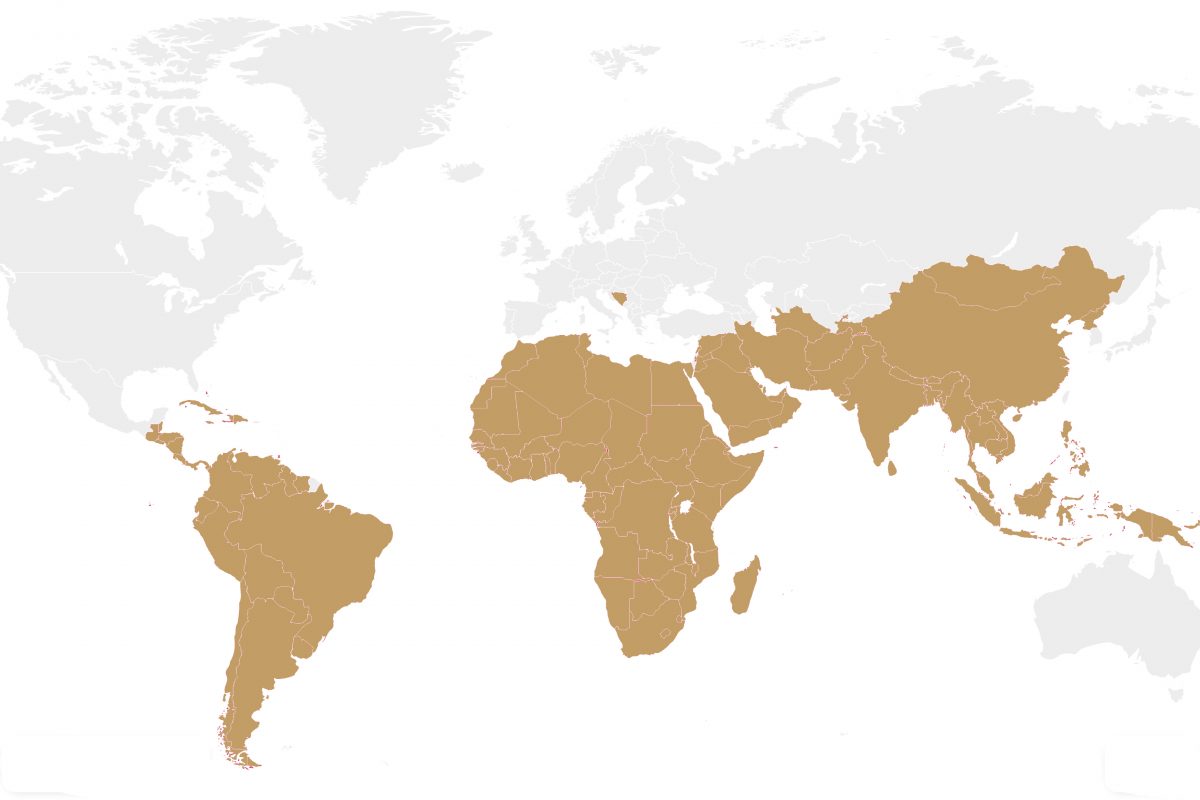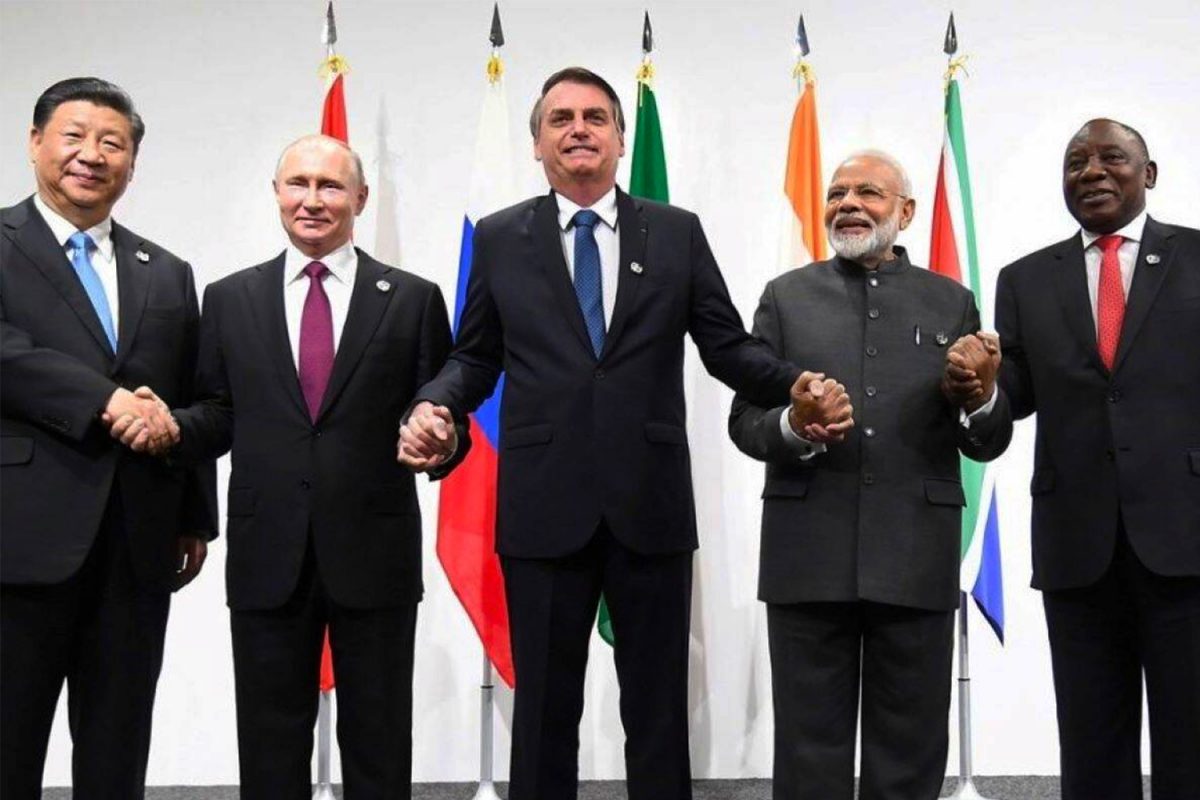The war in Ukraine has now been raging for over a month and victory for Russia looks to be moving ever more distant into the future. Russia’s inability to strike a decisive blow, the western response of kicking Russia out of SWIFT and the raft of sanctions means we are truly in uncharted territory. Whatever the outcome of the war, there are several trends taking place that will impact the global order and global power for the foreseeable future. Some trends were already in motion with the Ukraine war now fast tracking them.
Where you manufacture now matters
For decades the idea that cheap offshore manufacturing and a global supply chain would keep costs down for manufactures became the mantra of globalisation. Western multinational companies made use of cheap labour in places such as Vietnam, China and Bangladesh making themselves immensely rich, whilst the host nations in very few cases saw the benefits. Globalisation was already taking a hit when Donald Trump began attacking it in his presidency. McKinsey, the global consulting firm confirmed: “The Ukraine war is part of a pattern of supply chain disruptions getting more frequent and more severe,” pointing to the trade war between the US and China, the blockage of the Suez Canal last year, and the pandemic. All of these have focused attention on supply chain sovereignty and domestic production facilities.
The Ukraine war has highlighted the dangers of Europe’s dependence on Russian energy and the demand for chips during the pandemic exposed the US and Europe’s share of global semiconductor needs. BlackRock CEO Larry Fink told shareholders in a letter recently that Russia’s “decoupling from the global economy” following its assault on Ukraine has caused governments and companies to examine their reliance on other nations. “The Russian invasion of Ukraine has put an end to the globalization we have experienced over the last three decades.”[1]
Russia is the 10th largest economy in the world, a major energy supplier and a nuclear power. By being integrated into the global economy, the US has been able to sanction it. But the countries that depend on Russian energy have a bigger problem as there is no immediate solution to their energy problems. Much of north Africa has for long depended on Russian and Ukrainian wheat, when places such as Egypt should have developed their own breadbasket. Now Egypt is teetering on the brink as the surging price of food and underlying economic problems have come home to roost. Having a global supply chain is now a liability rather than an asset.
Holding the dollar is a liability
Russia has never been short of mineral resources and as a result Russia is the world’s largest oil producer after the US and Saudi Arabia. It is also the world’s largest producer of gas after the US and the 3rd largest wheat producer. This has brought immense wealth for Russia, allowing it to build up reserves of $630 billion. Russia has largely taken payment for exports in the euro and dollar and over half its reserves are held abroad in foreign currencies.
But in one go, much of Russia’s money became useless due to sanctions and Russia being kicked out of SWIFT. Holding money abroad and holding it in the dollar has become a huge liability for Russia now. The US has for long been weaponising the dollar and both China and Russia have for long been on the receiving end, along with North Korea and Iran.
It was not long ago that Russia had warming relations with the west. London even earned the nickname ‘Londongrad’ as it became a hub for Russian money since the collapse of the Soviet Union. But all of this changed with Russia’s invasion of Ukraine and whether it was London, Berlin or Paris, they all threw Russia under the bus and joined the US in sanctioning the country.
But in one go, much of Russia’s money became useless due to sanctions and Russia being kicked out of SWIFT. Holding money abroad and holding it in the dollar has become a huge liability for Russia now
Much of the Sovereign Wealth Fund (SWF) cash of the Gulf states and Saudi Arabia are invested in the west. Many of the rulers of the ‘third world’ have for long syphoned their wealth off to Swiss banks and offshore banks in the west, and all of this can be rendered useless at the click of a mouse if such nations fall out of favour with the west. They may all be in good relations currently, but this can change overnight as Russia is now realising.
The ‘Western’ led Order
Russia is being accused of contradicting the global rules-based order by interfering in the national sovereignty of another nation. The global rules-based order has become a value system in itself and all the countries in the world are expected to abide by the rules of the order.
The order was founded after WW2 by the US who emerged as the last man standing. The order that consists of economic, monetary, financial and trade institutions also includes the UN for international law with NATO for security. The liberal order with its union of democracies has always been a western order with values that originate in the west and are in essence to serve the west. The institutions have been used primarily by the US and the west to impose their national interests over the rest of the world.
This is why there has been so much inconsistency as the order serves the western agenda, rather than some global agenda. The US threw aside the UN and international law when it invaded Iraq back in 2003. This order has looked on as Yemen is bombed by Saudi Arabia, Russia bombed Syria and the multiple French interventions in Africa. The liberal order only moves when western interests are at stake, whilst it looks on when their interests are not at stake. In the case of Russia, the order did little when Russia invaded Chechnya, Georgia and Syria, but now it moved when Ukraine was invaded.
US Security Guarantees Mean Little
For many nations and regions, the US has promised security guarantees. Germany and Japan have never developed nuclear weapons as the US has guaranteed their security. Taiwan, South Korea, Poland and Australia have US security guarantees and hope the US will intervene in their time of need.
But the debacle of Afghanistan in August 2021, where those that aided the US in its two decades occupation were abandoned is leading many to reconsider US security guarantees. In the case of Ukraine, despite offering security guarantees the US, the West and NATO do not have the stomach for intervening militarily. The Ukraine president continues to ask for no fly zones, which the West refuses to implement. Western security guarantees do not mean what the Ukrainians believed they would. The west always promised they would protect Ukraine in any Russian aggression, just not in the way the Ukraine believed.
Western security guarantees do not mean what the Ukrainians believed they would. The west always promised they would protect Ukraine in any Russian aggression, just not in the way the Ukraine believed
In the end, nuclear Weapons do matter
Ukraine is learning the hard way what denuclearisation means. Ukraine in early 1992 was the third biggest nuclear power as it possessed a third of the Soviet union’s nuclear arsenal. Ukraine agreed to give up its nuclear arsenal and from 1996 and 2001 it either destroyed its arsenal or transferred nuclear material to Russia. Ukraine’s decision to give up nuclear weapons was after extensive deliberations with the US and Russia, and hefty security assurances by the three original Non-proliferation Treaty (NPT) powers — the US, Russia, and UK — and by France and China, as well. Now, with invading Russian forces inside Ukraine’s borders, many Ukrainians are wondering whether it had been a mistake to denuclearise.
Moammar Ghaddafi of Libya and Bashar al-Assad of Syria have learnt the hard way what can happen if you give up your WMD programmes and Ukraine has joined this list of nations that gave up their WMD programmes only to be invaded. In a strange twist of fate, the reason NATO refuses to implement no fly zones or physically intervene is the fact that Russia possesses nuclear weapons, proving in the end that possessing nuclear weapons does matter.




